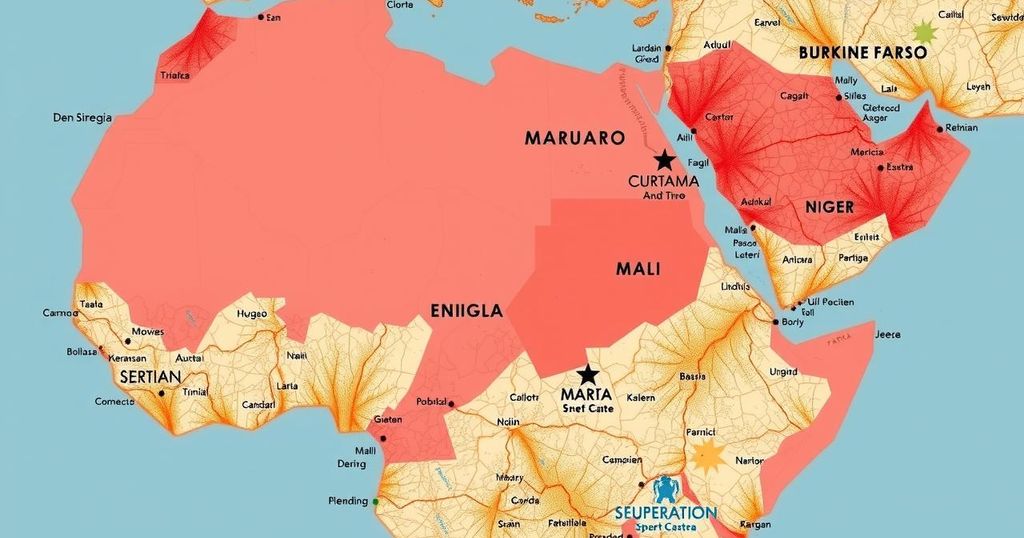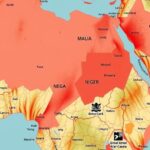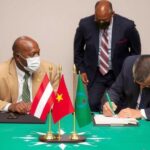ECOWAS Faces Existential Threat from Mali, Niger, and Burkina Faso Exit
The Economic Community of West African States (ECOWAS) is under threat following Mali, Burkina Faso, and Niger’s decision to exit the bloc by January 2025. This emerging crisis is rooted in dissatisfaction with ECOWAS leadership and the alignment with Western powers. Their exit poses significant implications for regional security, potentially bolstering terrorist groups and destabilizing West Africa, emphasizing the necessity for ECOWAS reforms and cooperative strategies to combat extremism.
The Economic Community of West African States (ECOWAS) is facing an unprecedented crisis following the announcement made on January 28, 2024, by three of its founding members—Mali, Burkina Faso, and Niger Republic—that they intend to exit the bloc within one year. This declaration, stemming from a perceived disconnect with ECOWAS’s leadership regarding their military coups and foreign policies, reflects deeper issues within the bloc, jeopardizing its stability and unity. The military leaders in these countries, citing dissatisfaction with ECOWAS’s perceived alignment with Western interests, particularly France, emphasized their alliance with Russia as an alternative strategy to combat the rampant terrorism plaguing the Sahel region. Their decision has far-reaching implications, threatening the very foundation of ECOWAS and raising concerns over regional security and cooperation.
Despite efforts by ECOWAS to mediate and amend relationships—such as lifting sanctions against these states—declining relations culminated in a recent summit where leaders acknowledged the irrevocable nature of their intended exit. This development has triggered extensive dialogue about the future of ECOWAS and the potential cascading effects of losing approximately 76 million citizens and vast land areas, which could foreshadow the group’s disintegration. Analysts suggest that a united ECOWAS is essential for maintaining regional stability, advocating for reforms to strengthen leadership and cooperative strategies among member states. The exit of these key nations is anticipated to embolden terrorist organizations, exacerbating security threats and complicating efforts to combat extremism across West Africa.
The ECOWAS bloc, established on May 28, 1975, aims to foster economic development and political harmony among West African states. With the recent military coups in Mali, Burkina Faso, and Niger, the bloc’s role in regional governance and security has come into question. This severance is rooted in heightened political tension and dissatisfaction with ECOWAS’s response to military leadership in the Sahel region, leading these nations to seek alternative alliances that align more closely with their strategic interests, notably with Russia. The ramifications of their exit pose critical challenges for regional stability and counter-terrorism efforts, as the Sahel has become increasingly susceptible to extremist violence.
The impending exit of Mali, Burkina Faso, and Niger from ECOWAS represents a significant challenge to the unity and efficacy of the bloc, potentially leading to enhanced security risks not only within the Sahel but across West Africa. The situation necessitates urgent re-evaluation of ECOWAS’s diplomatic and military strategies to preserve its integrity and address the roots of extremism. As discussions unfold regarding the future of regional security, it is essential for ECOWAS to implement reforms that align with the aspirations of its member states while fostering collaborative strategies to combat the spread of terrorism.
Original Source: nannews.ng








Post Comment